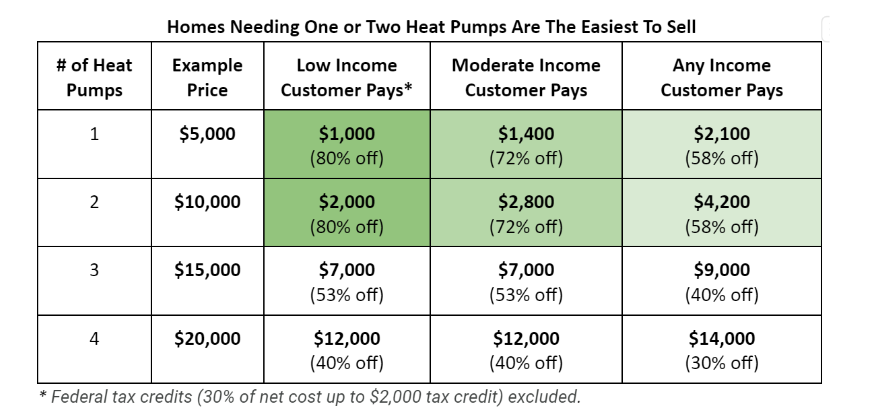The advantages of single-zone heat pumps are 1) they provide backup for one another 2) they provide better comfort, and 3) they cost less to operate.
1. Backup
If one, single-zone heat pump needs service, the other heat pumps will continue to operate. With a multi-zone, any failure can lead to a “no heat” situation.
2. Better comfort
a. Single-zone heat pumps can more effectively dehumidify homes as a result of their ability to run longer at lower capacities.
b. Using multiple, single-zone heat pumps allows for the option to run them in different modes simultaneously (e.g., heat in one room, dry-mode in another, fan-only in a third, etc.) Multi-zone indoor units all need to operate in either heating or cooling mode simultaneously.
c. Single-zone, heat pump compressors turn off when there’s no heat needed. With multi-zone heat pumps, if any indoor unit calls for heat, hot refrigerant flows through all indoor units, even the ones not calling for heat. This is worsened by the fan that runs to sample room temperature. The result can be overheated rooms.
3. Cost less to operate.
There are three reasons that single-zone heat pumps offer lower operating costs.
a. One reason is that they are simply more efficient. Their AHRI HSPF ratings are up to 15.2 compared to just 12.8 for multi-zone systems.
b. Another reason that single-zone heat pumps cost less to operate is that they have better turndown ratios (i.e., the ratios between their highest and lowest rated capacities). This means that when heat demand is low (fall and spring) they can run continuously at slow speed rather than having to inefficiently cycle on and off View Example. Single-zone heat pumps also offer more capacity at lower temperatures compared to multi-zone heat pumps View Example.
c. The third reason that single-zone heat pumps cost less to run is that users can turn off one single-zone heat pump at a time to further avoid short cycling.

